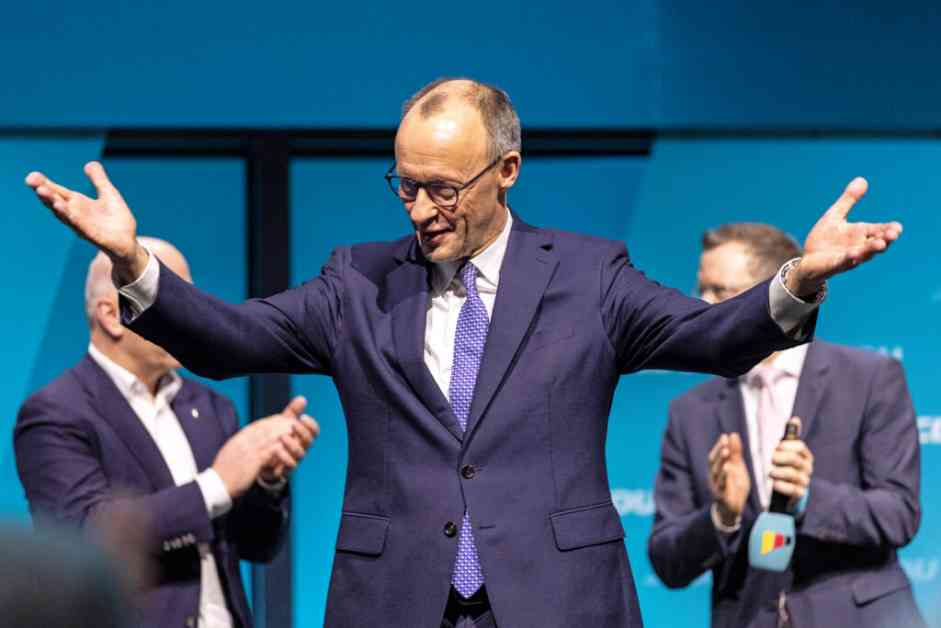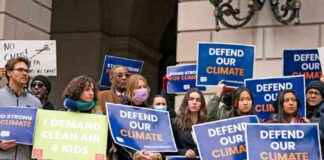Germany’s Conservative Victory: Impact on Climate Policies
In a surprising turn of events, the center-right Christian Democratic Union emerged victorious in the recent German general election, setting the stage for potential shifts in energy and climate policies. Led by Friedrich Merz, the party clinched the win with pledges to curb immigration, lower taxes, and address energy affordability. Notably, they also expressed willingness to reverse the nation’s nuclear power phaseout, a move that could have far-reaching consequences.
A Fresh Mandate with Limitations
Despite the Christian Democrats’ margin of victory, standing at 28.6 percent, falling short of a resounding win may limit their ability to implement substantial changes. Germany, renowned for its leadership in transitioning away from fossil fuels, has played a pivotal role in global climate treaties, making any alterations to its existing policies a matter of international significance.
Jan Techau, director of Europe for the Eurasia Group, succinctly captured the essence of the election outcome, emphasizing the government’s fresh yet weak mandate, underscoring the need for a more robust position to navigate the challenges ahead. The impending coalition talks with the center-left Social Democratic Party hint at potential compromises and negotiations to form a stable government under Merz’s leadership.
An International Perspective on the Verge of Change
Merz’s vow to strengthen Europe swiftly and achieve independence from the US highlights a broader geopolitical context, with implications reverberating beyond Germany’s borders. The contrasting viewpoints on climate action and energy policies between the outgoing and incoming administrations underscore the evolving landscape of global alliances and priorities.
In a surprising twist, former US President Donald Trump weighed in on the election results, drawing parallels between the conservative wave in Germany and his own political narrative. His commentary, shared on Truth Social, underscores the interconnectedness of international politics and the resonance of populist sentiments across continents.
Rise of Far-Right Voices and the Climate Conundrum
While the Christian Democrats experienced a modest uptick in their vote share, the far-right Alternative for Germany (AfD) emerged as a formidable contender, doubling its support to secure second place. The AfD’s anti-establishment stance presents a challenge to mainstream parties, with concerns about far-right extremism looming large in coalition discussions.
The exclusion of the Green Party from the potential government formation marks a significant shift from the previous coalition dynamics, hinting at a reconfiguration of political alliances and policy priorities. The resurgence of the socialist Left Party underscores the polarization at both ends of the political spectrum, reflecting a broader societal shift towards ideological extremes.
Continuity Amidst Uncertainties in Climate Policies
Sascha Müller-Kraenner, a leading voice in environmental advocacy, predicts a nuanced approach to energy and environmental policy under the new administration, citing a lower level of ambition tempered by a sense of continuity. The longstanding coalition between the Christian Democrats and Social Democrats during Angela Merkel’s tenure hints at a shared legacy that may shape future policy decisions.
While the business community’s support for the energy transition remains steadfast, uncertainties loom over budget allocations for international climate programs under Merz’s leadership. Müller-Kraenner’s insights underscore the delicate balance between economic imperatives and environmental commitments that will define Germany’s climate trajectory in the coming years.
Navigating a Complex Path Forward
Vera Trappmann, a renowned expert on the sociology of climate change, emphasizes the challenges of bridging ideological divides to enact meaningful climate action. The absence of robust discourse on climate issues during the election campaign raises concerns about the government’s ability to address pressing environmental challenges effectively.
Trappmann’s observations, grounded in her German upbringing, paint a nuanced picture of the complexities facing the new coalition, highlighting the need for pragmatic solutions amidst political polarization. As Germany navigates this critical juncture, the specter of government gridlock and the AfD’s opportunistic tactics loom large, underscoring the urgency of cohesive policy-making in the climate arena.
A Glimmer of Hope for Nuclear Energy
The Christian Democrats’ renewed focus on nuclear power as a viable energy option signals a potential shift in Germany’s energy landscape, albeit amidst lingering concerns about public opposition and cost-effectiveness. The party’s emphasis on research into advanced nuclear technologies reflects a nuanced approach to diversifying the energy mix, albeit with significant hurdles to overcome.
Trappmann’s skepticism about the feasibility of nuclear energy’s resurgence underscores the intricate interplay between political rhetoric, public sentiment, and economic realities shaping energy policy decisions. As Germany treads cautiously towards embracing nuclear power, the broader implications for climate goals and energy security remain pivotal in the national discourse.
Supporting Independent Journalism for a Sustainable Future
As we unravel the intricacies of Germany’s conservative victory and its implications for climate policies, the broader narrative underscores the urgency of informed, independent journalism in shaping public discourse on environmental challenges. Inside Climate News, a nonprofit organization dedicated to comprehensive climate coverage, exemplifies the power of reader-funded journalism in holding polluters accountable and inspiring collective action.
Donations from readers like you sustain our vital work in reporting on the pressing climate crisis and ensuring our stories reach a wider audience. Your support fuels our commitment to environmental justice, solutions-oriented reporting, and collaborative partnerships with local newsrooms. Together, we can navigate the complexities of climate change and forge a sustainable path forward for future generations.
In conclusion, Germany’s political landscape stands at a crossroads, with far-reaching implications for energy, climate, and international relations. The delicate dance between competing ideologies, economic imperatives, and environmental imperatives underscores the need for cohesive, forward-thinking policies to address the urgent challenges of our time. As the nation charts a new course under the Christian Democrats’ leadership, the world watches closely, awaiting the unfolding of a new chapter in Germany’s climate journey.














